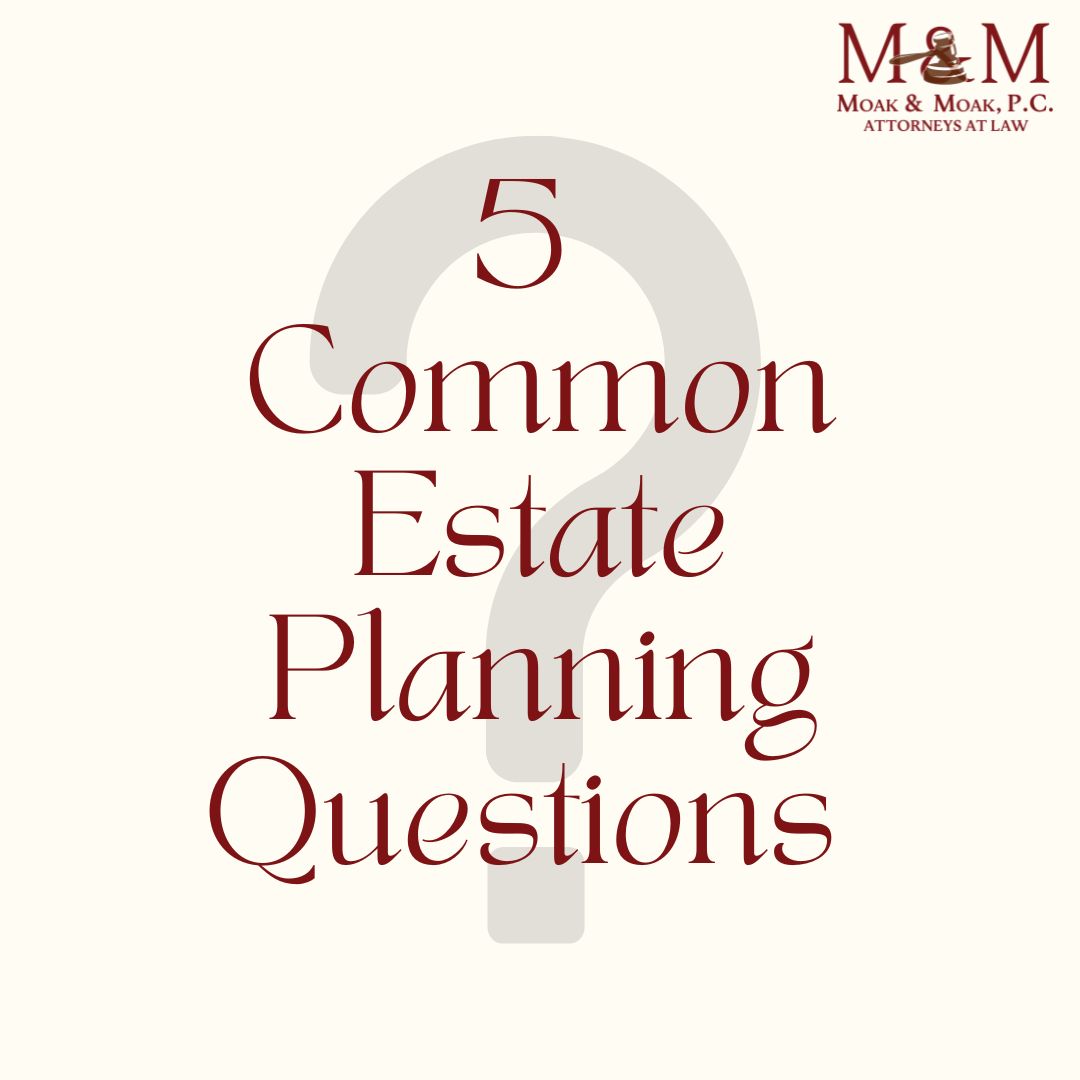Starting an estate plan can be overwhelming, and you probably have many questions. You are not alone. This week I will discuss five questions people often ask about last wills and testaments as they begin to think about estate planning.1. Aren’t Wills Only for Wealthy People?This is a common myth. Last wills and testaments (also known simply as wills) are not just for the wealthy. In a will, you can outline who you want to receive your possessions when you die; this might include your money, your real estate, and items of sentimental value.
If you have children who have not yet reached adulthood, you also would be well advised to have a prepared a valid will in which you name a guardian. Even if you think you do not own enough property to justify a last will, it is important to create one expressing your wishes about how – and to whom – you want your property distributed at your death.
2. Does All My Property Pass Through My Last Will?The language used in a will is key to this answer. Any property you own solely in your name can pass through your last will if it is properly identified. However, how you identify the property you wish to have passed to your heirs via your last will is very important. If not properly identified, your may not pass to the person(s) you desire.If you die without a will, Texas law governs the disposition of your property through a body of law called intestate succession.If you have children who are minors, you can appoint in your will the person you want serving as their guardian in the event of your death. Not having a will could mean that administering your estate incurs additional costs, diminishing any inheritance your kids may have otherwise had received.3. Even if I Don’t Have a Will, Won’t My Spouse Automatically Get Everything if I Die First?No, your spouse may not immediately inherit your property if you die without a last will. Usually, if your property passes through intestate succession and you are married with children, your spouse receives a spousal share of your estate. The amount of a spousal share can vary depending on your facts and circumstances.4. What’s Wrong With a DIY Will?Over the past several years, do-it-yourself last wills have become popular. However, you should be cautious about relying on a DIY last will, as laws regarding estate planning are complex and can vary widely by state.Some common issues with DIY last wills include:
1.A licensed attorney does not usually review them2.They may not comply with legal requirements for creating a valid will that are specific to your state3.It may not dispose of your entire estate4.If you have a blended family or children who are not yet legal adults, or you own a second home or a business, a DIY will may not address all of your unique needs5. Do I Need More Than a Will?A last will is an important part of your estate plan. It’s a good start, but it does not convey certain powers. You may want to consider supplementing it with other key estate planning documents. For example, suppose you become unexpectedly impaired during your lifetime and can no longer handle your own affairs or communicate your wishes. You would benefit from a health care directive that expresses your desires for any medical treatment you receive. With a durable power of attorney in place, you also can ensure that an individual you trust handles decision making regarding such matters as your financial, legal, and medical needs.Despite the fact that everyone would benefit from having a will, the majority of Americans have not yet put together any type of estate plan. Schedule a meeting with an attorney experienced in estate planning to discuss your goals and to get the most out of your estate plan.

